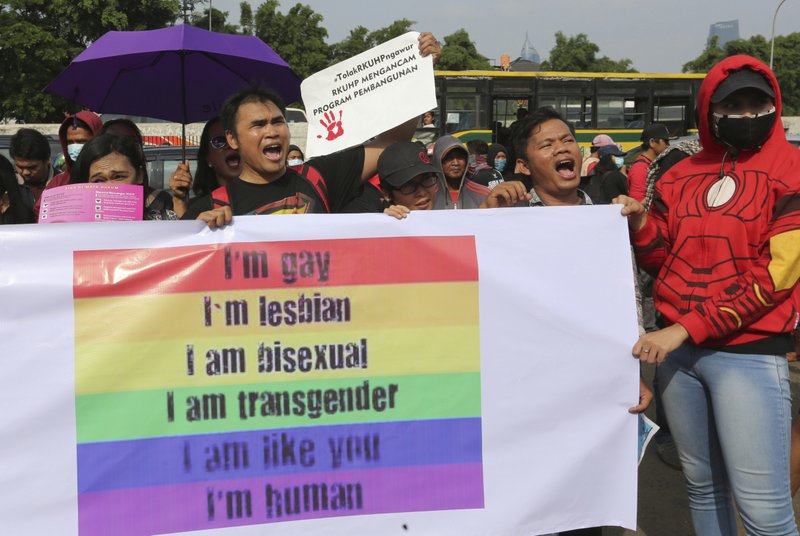JAKARTA, Indonesia -- Disowned by his father and ill-equipped to deal with the stigma of HIV/AIDS, a young man who died in the central Indonesian city of Yogyakarta early this year had "effectively committed suicide" by stopping anti-viral medication, according to a doctor familiar with the case.
The 20-year-old man's death is a sign of an out-of-control but little acknowledged epidemic of HIV among gay men in Indonesia that researchers say is now being fueled by a gay hate climate whipped up by the country's conservative political and religious leaders.
After the young man died in February at a Yogyakarta shelter, no one from his immediate family took the body, said Sandeep Nanwani, a doctor and HIV outreach worker. The previous year, Nanwani had helped raise funds to move him from Jakarta, the capital, where he'd lost his job due to his deteriorating health.
"The family disowned him. They didn't want anything to do with him," said Nanwani. "In the shelter, he felt like there's nothing, no future. And then he started skipping his medications."
According to the United Nations, human immunodeficiency virus affects more than a quarter of Indonesian men who have sex with men, a dramatic increase from 5 percent in 2007. In Jakarta and the capital of Bali province, Denpasar, the rate is 1 in 3.
In common with the wider population of HIV-positive people in Indonesia, the majority are not tested for HIV until developing symptoms of illness indicating their immune system has been compromised. Only a small minority receive anti-viral medications that can give people with HIV near-normal life expectancy.
Condom use and testing individuals from high-risk groups for the virus -- before it weakens the immune system causing Acquired Immune Deficiency Syndrome, or AIDS -- are both crucial to curbing its spread, according to communicable disease experts.
But Indonesia is failing at both and is now making it even more difficult for health workers to reach gay and bisexual men.
Highly publicized police raids targeting gay men and an outpouring of anti-gay rhetoric from officials and other influential figures since early 2016 have caused significant disruption to HIV awareness and testing programs, according to a Human Rights Watch report released Monday.
Laura Nevendorff, a researcher at the HIV Research Center at Atma Jaya Catholic University, said the police practice of using condoms as evidence against gay men has had a pernicious ripple effect, turning the crucial safeguard into possible grounds for criminal prosecution.
Homosexuality is not illegal in Indonesia. Police have used an anti-pornography law to prosecute gay men.
"They are afraid," said Nevendorff. "They think if they are carrying condoms, it could jeopardize their safety."
Nanwani said the toll of the health crisis is "hidden" from view.
In the case of the 20-year-old man who died in February, an aunt took his body for burial in his deceased mother's village.
On Facebook, he posted frequently about his failing health and dismay at the rising tide of anti-gay sentiment in Indonesia.
His final message said God would help him recover if only his mind was capable.
"Thanks for the support and prayers," he wrote.
A Section on 07/03/2018
